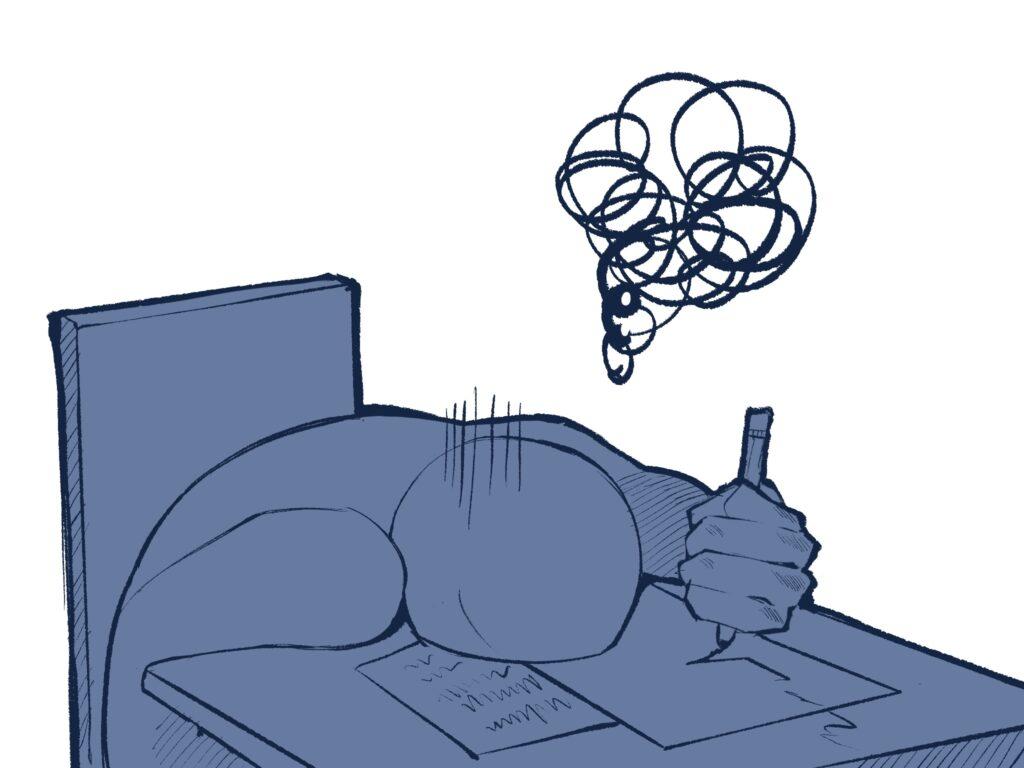It’s no surprise many students consider AP testing an excruciatingly tedious process that yields little educational value.
Education is meant to nurture the creative sides of young minds and encourage new ideas that often challenge the status quo. A quick glance at almost any AP test reveals the exact opposite: Test takers are encouraged to follow formula writing and bubble in the correct boxes. In this system, students are too often rewarded for “gaming the system” and see little gain from genuine creativity not measured on a standardized test.
To conform to the standards CollegeBoard sets for its tests, AP courses are forced to skim required material and spend an undue amount of already-limited time to teach students how to format their writing and “articulate arguments” (mainly applied to History and the English APs).
Let’s take a deeper look at the History APs, which students take to learn about the world around them, develop a sense of identity and make more informed political decisions. Instead of fulfilling these goals, AP standards facilitate an adherence to predetermined standards and punish any deviation.
This pure absurdity is exemplified by the weightage placed on argumentation, with long answer questions often making up more than half of the points on the test. Although an emphasis on argumentation could bring added value in critical thinking, history is an objective study of the past, not a subjective interpretation of what happened.
This teaches students to generate a surfeit of gibberish: They are evaluated on the coherence of their argument rather than its accuracy.
For students in classes such as AP Biology and AP U.S. History, excelling at writing or having a grasp of what AP readers are “looking for” will give them an edge regardless of their true understanding of course material. They have been delegated to looking for “subjective experience” and “meaning,” not “analysis or knowledge.” For students in classes such as AP Physics or AP Statistics, memorizing more “test tricks” like thesis formulas and analysis abbreviations will help achieve the highest scores. As a result, test scores are often not reflective of students’ true understanding of subject material so much as their test-taking skills.
From the perspective of many college professors, the excessive premium CollegeBoard places on using buzzwords and completing checklists is detrimental for success in higher education, where truly understanding subject material is far more important than exercises such as identifying literary devices.
If all of the negative sides of AP testing were not enough to render it a fundamentally flawed system, recent studies have shown that AP testing exacerbates educational inequality. Even with fee waivers and other measures attempting to mitigate the effects of educational inequality, AP exams still expand the divide between wealthy and less fortunate communities. Schools with inadequate funding are left out of AP programs, and those which do offer AP courses without the robust resources required often find themselves unable to muster the vast resources needed for a comprehensive curriculum.
Students in those poorer communities have less time to focus on studying when they have other commitments to helping out their family financially. Wealthier school districts can invest in workshops and other resources for their students. Underserved districts should reallocate their resources towards strengthening their core curriculum rather than pushing for more AP classes.
Additionally, CollegeBoard content is overwhelmingly Eurocentric, with AP U.S. History and AP European History being laser-focused on history from a Western perspective. Although AP World History brings additional perspectives, large swaths of its curriculum are still dedicated to Western narratives. AP African American Studies is a step in the right direction, but CollegeBoard has much more to do in diversifying its course portfolio.
As far as I’m concerned, America would be better off without AP tests and CollegeBoard as a whole.
























